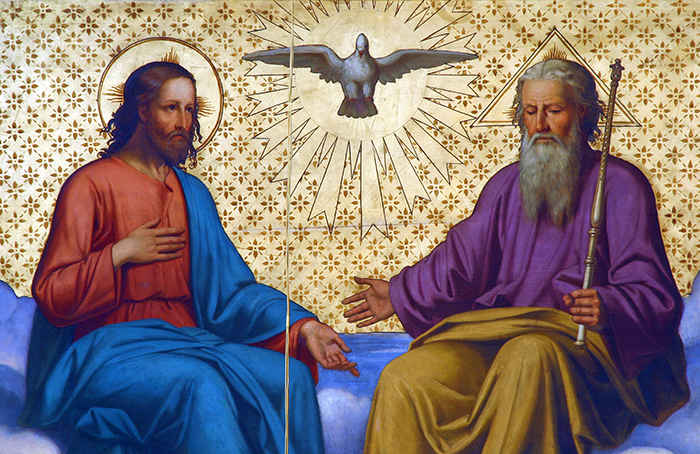
G.K. Chesterton once said that one of the reasons he believed in Christianity was because of its belief in the Trinity. Fr. Rolheiser writes that if Christianity had been made up by human people, it would not have at its very center a concept that is impossible to grasp or explain: the idea that God exists as one but within three persons. How do we understand the Trinity? We don’t! God, by definition, is ineffable, beyond conceptualization, beyond imagination, and beyond language. The Christian belief that God is a trinity helps underscore the rich mystery of God and how our experience of God is always richer than our concepts and language about God. Many of the most powerful myths ever told arose out of the experience of God’s overwhelming richness and the ancient peoples’ incapacity to conceptualize God and God’s activity in any singular way. Whatever else might be said about polytheism and ancient myths about the gods and goddesses, ancient religious practices, and the incredible canon of mythology that these produced speak of how rich, untamed, and beyond simplistic imagination and language is the human experience of God. The ancients believed that their experience pointed to the existence of many deities. And then a massive shift took place: Judaism, soon followed by Christianity and Islam, introduced the strong, clear, doctrinaire idea that there is only one God. Now all divine power and energy were seen as coming from a single source, monotheism, YHWH, the Father of Jesus, Allah. There were no other gods or goddesses. But from the time of Jesus’ resurrection onwards, Christians began to struggle with simple monotheism. Their experience of grace and God’s action in the world was at odds with their simplistic conception of monotheism. The Council of Nicea in 325 gave us the creedal formula we profess today: There is one God in three persons; except they wrote that formula in Greek, and the words there state literally that God is one substance in three subsistent relations. That formula isn’t meant to give us perfect clarity. To what does this call us? To humility. All of us, believers and atheists, need to be humbler in our language about God. The idea of God needs to stretch, not shrink, the human imagination.
